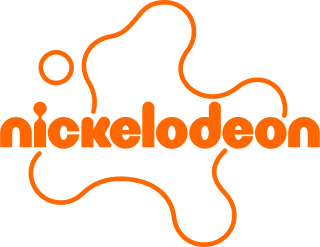
Nickelodeon is an American pay television channel owned by Paramount Global through Paramount Media Networks' subdivision, Nickelodeon Group. Launched on April 1, 1979, as the first cable channel for children, the channel is primarily aimed at children and adolescents aged 2 to 17, along with a broader family audience through its program blocks.

AMC is an American basic cable television channel that first launched in 1984, and is the namesake flagship property of AMC Networks. Since 2002, the full name has been de-emphasized as a result of a major shift in its programming.

Fox Kids was an American children's programming block and branding for a slate of international children's television channels. Originally a joint venture between the Fox Broadcasting Company (Fox) and its affiliated stations, it was later owned by Fox Family Worldwide.
Sundance TV is an American pay television channel owned by AMC Networks that launched on February 1, 1996. The channel is named after Robert Redford's character in Butch Cassidy and the Sundance Kid and, while it is an extension of Redford's non-profit Sundance Institute, the channel operates independently of both the Institute and the Sundance Film Festival.

PRISM was an American regional premium cable television channel in the Philadelphia metropolitan area. Launched in September 1976, PRISM was primarily distributed through area cable systems, although it was also available through a scrambled over-the-air signal on WWSG-TV from 1983 to 1985.
A weekday cartoon is the colloquial term for the animated series programming that was typically scheduled on weekday mornings and afternoons in the United States on many major television networks and in broadcast syndication since the 1960s.
MSG Metro Channels was a series of local-minded New York City cable networks which launched on August 5, 1998, and closed in late 2005. Owned by Rainbow Media, the Metro networks were founded as a spinoff of the MSG sports network. The network was originally split into three separate channels, MSG MetroGuide, MSG MetroTraffic & Weather, and MSG MetroLearning Center. The tri-channel network was termed as "What to do, what to know, and how to get there" among similar billings and was an attempt by Rainbow Media to compete with newspapers and the internet for detailed coverage. Rainbow sought carriage in the mid- to high-teen numbers for the channels, so as to highlight that they "[fit] together like sections of a Sunday newspaper".

VH1 Latin America was a music channel from ViacomCBS-owned ViacomCBS Networks Americas. The network was launched on April 1, 2004 exclusively on Cablevisión D.F. in Mexico, and in the rest of the region some months later. The channel targeted audience from 19 to 44 years old and played local and international music videos from the 1970s to the 2000s. It also aired famous countdowns from VH1 United States. It reached most of the satellite and cable systems in Latin America. VH1 Soul, another channel of MTV Networks and sister channel of VH1 was also available in the region.

Grupo Firmas Globales is a Mexican media conglomerate with holdings in broadcast television, radio, publishing and entertainment.

Nickelodeon is a Hispanic/Latin American pay television channel, counterpart of the American network of the same name. It is owned by Paramount Networks Americas and was launched on 20 December 1996. Aside from airing Nick and Nick Jr. content, it has produced original programming for the channel and has been sold to local distributors worldwide except for Cuba as cable television is banned in that country.

Television is one of the major mass media of Argentina. As of 2019, household ownership of television sets in the country is 99%, with the majority of households usually having two sets. Cable television has become the most used type of delivering, with 73.2% of households having a cable provider.

Disney Channel is a Latin American pay television network broadcasting throughout Hispanic America. It was officially version of the eponymous television channel in the United States launched on July 27, 2000 as a premium-label channel, and became a basic pay TV network in 2004.

The Argentine Governments of Néstor Kirchner and Cristina Fernández de Kirchner had several conflicts with major media groups. Kirchner accused the Clarín Group, La Nación, Perfil, and related media of having promoted their overthrow.

Magic Kids was an Argentine cable channel which aired cartoons, anime and live shows aimed at kids and young teens. The channel was founded on January 12, 1995, and went defunct on May 24, 2006.

ZAZ was a Mexican cable television network owned by MVS Comunicaciones aimed at children and teenagers. The cable network was launched in Mexico in October 1991 and expanded to the rest of Latin America in 1996. In Mexico and Latin America, it was available through various cable television companies. Originally, its programming consisted of "non-violent" animated and live-action series. However, in its final years the channel's concept was changed, airing anime series and family movies.
izzi is a Mexican telecommunications company owned by Grupo Televisa and operated by Televisión Internacional, S.A. de C.V. It is listed on the Mexican Stock Exchange under the code CABLE. izzi provides telephone, Internet, cable TV and mobile services to individuals and companies with coverage in cities in Mexico.

Telefe Internacional is the international signal of the Argentine television channel Telefe. It broadcasts television programs produced by Telefe, mostly consisting of telenovelas, series, comedies, teen and children's series, etc. It is available in countries outside Argentina. In the US and some territories, the channel is distributed by Paramount Media Networks.

Flow is an Argentine company that provided cable television and internet services in its country of origin, Paraguay and Uruguay, as of 2018 integrated into Telecom Argentina S.A.

Cablevision Systems Corporation was an American cable television company with systems serving areas surrounding New York City. It was the fifth-largest cable provider and ninth-largest television provider in the United States. Throughout its existence and in its final years, Cablevision exclusively served customers residing in New York, New Jersey, Connecticut, and a small part of Pennsylvania. However, at one time it provided service in as many as 19 states. Cablevision also offered high-speed Internet connections, digital cable, and VoIP phone service through its Optimum brand name. Cablevision also offered a WiFi-only mobile phone service dubbed Freewheel.
Discovery Family is an American cable television channel co-owned by The Cartoon Network, Inc. and Hasbro Entertainment, which are divisions of Warner Bros. Discovery Networks and Hasbro respectively.














